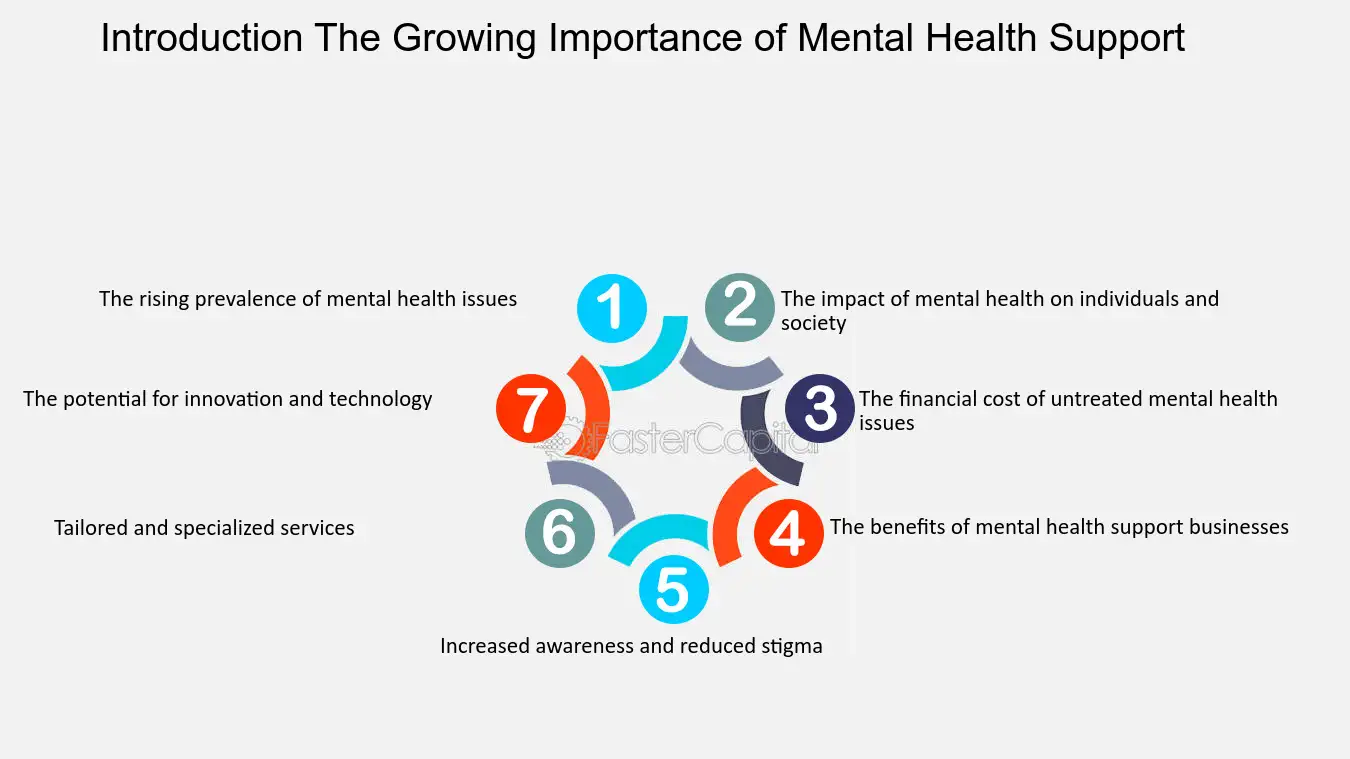Key Takeaways:
- Mental health awareness has become critical to employee well-being in business environments.
- Providing mental health coverage within health plans can enhance employee productivity and satisfaction.
- Employers that include mental health services in their benefits are more attractive to top talent.
- Comprehensive mental health coverage aligns with broader societal moves towards holistic health approaches.
Table of Contents:
- Introduction to Mental Health Coverage
- Why Mental Health Coverage Matters
- Benefits of Mental Health Coverage for Businesses
- Implementing Mental Health Coverage
- Conclusion on Mental Health Coverage
Introduction to Mental Health Coverage
Understanding and supporting mental health within the workplace has become a growing priority for businesses worldwide. As awareness about mental health challenges increases, so does the need for robust coverage options within employee health plans. The stigma surrounding these issues gradually diminishes, thanks to ongoing advocacy and education efforts. Today, more companies recognize the importance of offering inclusive health plans that address mental health needs, going beyond traditional physical health coverage alone. Doing so benefits employees and proves advantageous for employers in terms of workplace wellness and productivity.
Integrating mental health services into business health plans demonstrates a commitment to comprehensive employee care. This move reflects a deeper understanding of how interconnected psychological and physical health can significantly affect an individual’s well-being and performance. As a crucial component of a modern benefits package, mental health coverage represents a forward-thinking approach that advocates for a balanced and supportive work environment. In exploring the reasons behind this trend, businesses can better appreciate mental health’s invaluable role in fostering a sustainable and thriving workplace.
Why Mental Health Coverage Matters
Including mental health coverage in business health plans is increasingly seen as essential. Recognizing and addressing mental health concerns delivers positive outcomes at individual and organizational levels. Mental health challenges can impact anyone, irrespective of role or industry, affecting everything from mood and energy levels to overall job performance. Businesses foster an inclusive environment conducive to sustained success by supporting employees’ mental health.
The advent of diverse workplace dynamics has amplified discussions around mental health support. With changes such as remote working, flexible hours, and global teams becoming commonplace, employees may face new pressures and stressors. Consequently, incorporating mental health coverage helps employees access necessary support and resources. As awareness grows, so does the expectation for businesses to take active steps in providing potential solutions through policies that include mental health care.
Furthermore, businesses that address mental health needs through comprehensive insurance options, such as those found at https://www.insurancenyou.com/health-insurance-idaho, enhance their reputation and appeal. Companies that value holistic employee wellness are often rewarded with higher morale, better engagement rates, and increased loyalty. As employees feel more supported, they will likely invest incredible energy and passion into the business, illustrating just how pivotal mental health support has become.
Benefits of Mental Health Coverage for Businesses
Investing in mental health coverage within health plans offers several benefits to the organization and its workforce. Among the primary advantages is promoting a healthier work environment. A supportive atmosphere that prioritizes mental health paves the way for staff to seek help when needed, resulting in reduced absenteeism and presenteeism. Employees with access to these resources are better equipped to manage stress and anxiety, directly contributing to a more focused and productive workforce.
Moreover, offering mental health services within health plans supports talent acquisition and retention. As the competition for top-tier talent intensifies, businesses that provide comprehensive benefits, including mental health care, are viewed as more attractive employment prospects. Potential hires increasingly evaluate benefits packages during decision-making, making mental health coverage a distinguishing factor for employers aiming to attract skilled professionals.
Mental health coverage also contributes positively to overall employee satisfaction and engagement. When employees feel valued and supported with access to quality mental health resources, their relationship with work improves, resulting in a more cohesive and motivated team. Organizations that demonstrate genuine concern for their employees’ well-being are often rewarded with improved workplace culture and mutual respect. This enhances employees’ job performance and drives long-term business success.
Implementing Mental Health Coverage
Implementing mental health coverage within business health plans requires careful planning and a commitment to understanding employees’ needs. The first step typically involves conducting a comprehensive workforce analysis to determine prevalent mental health concerns and preferred solutions. Utilizing internal surveys and feedback forms can provide insight into employee experiences and expectations, pointing to areas where coverage can be most impactful.
Once needs are identified, businesses should seek partnerships with health plan providers who offer a range of mental health services, including counseling, therapy, and support hotlines. Collaborating with professionals specializing in mental health ensures that the selected coverage options are practical and relevant. Plans that offer flexibility in determining mental health practitioners and confidentiality in accessing services are particularly advantageous.
Additionally, businesses looking to introduce or enhance mental health coverage must focus on communication. It is crucial to educate employees about available resources, how to access them, and the value they provide. Regularly promoting these benefits encourages utilization and demonstrates the organization’s commitment to mental health, fostering a culture of openness and support. By creating a seamless, accessible experience, businesses empower employees to take full advantage of the mental health services provided for their well-being.
Conclusion on Mental Health Coverage
The rising importance of mental health coverage within business health plans is undeniable. As organizations recognize mental health’s profound impact on employee well-being and workplace productivity, comprehensive coverage becomes an invaluable component of any benefits package. By integrating mental health services thoughtfully, businesses can enhance their workplace culture, support an engaged and healthy workforce, and establish themselves as leaders in employee wellness.
Employees who feel valued and backed by robust mental health support can contribute more effectively, bringing their best selves to the workplace daily. The benefits extend beyond personal well-being, reinforcing broader organizational objectives and enabling sustainable growth. As mental health continues to prominence in public discourse, businesses aligning with this focus are better equipped to lead in an increasingly competitive environment, championing a resilient, dynamic, and fulfilled workforce.
Read More From Techbullion



































